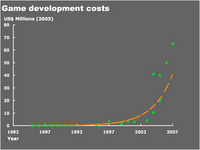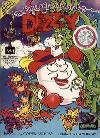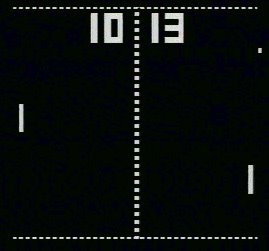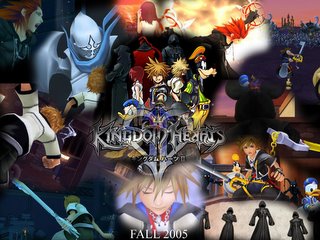Landing on top of the Fletcher Buliding."Gameplay includes all player experiences during the interaction with game systems, especially formal games. Proper use is coupled with reference to "what the player does". Arising alongside the development of game designers in the 1980s, gameplay was used solely within the context of video or computer games, though now its popularity has begun to see use in the description of other, more traditional, game forms. Generally, the term "gameplay" in video game terminology is used to describe the overall experience of playing the game excluding the factors of graphics, sound, and the storyline. The term "Game mechanics" refers to sub-elements of the gameplay, but particularly the primary control and movement features of the game (thus excluding things like level design or AI).
Many current game design theorists from the background of art theory argue that gameplay is a largely meaningless or empty term, superseded by other concepts established in the repertoire of perception, anthropology, and general iversified psychology. Others see the very term as an indication that current game design theories remain primitive and underdeveloped noting that, for example, cinema does not require "movie-watch" nor novels "book-read" in order that these (non-interactive) media be described formally. Current academic discussions tend to favor more practical terms such as "game mechanics".
Despite these criticisms, the term gameplay has gained acceptance in popular gaming nomenclature, as it succinctly indicates a domain of perceptual concepts not readily accessible by other phrases. Some gaming reviews give a specific score for gameplay, along with graphics, sound, and longevity. Many consider "gameplay" to be the most important indicator of the quality of a game. Many game critics feel that gameplay in games is analogous with narrative in fiction, and serves as the foundation to which other elements (for example, story) are added. Those who counter the art theory of game point out that games are essentially playing. Playing is as old as or even older than art in the history of humanity. Therefore, it may not be appropriate to define or evaluate games in the same context as art. In fact, a few Japanese gamemakers have their origins in toy making, the most famous being Nintendo. A notable contemporary play theorist is Jesper Juul who works on both pure play theory and the application of this theory to Computer game studies. The theory of play and its relationship with rules and game design is also extensively discussed by Katie Salen and Eric Zimmerman in their book: Rules of Play : Game Design Fundamentals."
http://en.wikipedia.org/wiki/Gameplay
English please. No seriously, some of this would be easier explained in English that anyone can understand, not technobable.
What I think it is saying is that Gameplay is the term for the experiance of playing a game and this doesn't include the sound, graphics or storyline. I think it is also saying that experts belive that the term is an empty one and that it proves the gaming industry is still primative because  films and books don't need a similar term.
films and books don't need a similar term.
I think that is complete and utter bollocks.
Gameplay is an important feature in games, to me it implys how much a game emerses you in the world and character of the game, films and books don't need these terms becuase you are not interacting with the book or film you are reading or watching it, that is something completely different, obviously these experts don't understand that differences between books and film to games, they come from a background of art theory, not a games design background, otherwise they would understand the subtle differences.
Many games mags give marks to a game for gameplay, and it is a term which covers a whole range of things in a game, and to a gamer gameplay is important because a game with crap gameplay will not be anywhere near as good as a game with good or excellent gameplay. A game doesn't need good graphics or music, though that helps, after all, the difference between movies and games and real life is that real life doesn't have a sound track. However both the graphics and the music help to improve the game as it helps the player basically mentally enter the world they are watching and interacting with.
It is really, really, really, really, really, really, really, really, really, really, really, really, really, really, really, really, really, really, really, really, etc, important in games to have good gameplay as it will attract people and they will pass the word onto thier friends and the chain will continue. Gameplay is not something that can be designed into a game, it's something that is created when a games factors join together to create somethng that totally emerses the player into a world and life of someone completely different and causes the player to forget about the outside world.
That's my opinion, I bet that the rest of the class will have thier own,
And now I'm up to date,
And I know my wings are strong enough to allow me to fly again,
So I will take off from the Fletcher Builidng and look forward to Christmas with my family.
Joey
 Final Fantasy X is an amzing game storyline wise, I love it, I always have and I always will.
Final Fantasy X is an amzing game storyline wise, I love it, I always have and I always will. cannot keep up, there is anti-aliasing on swords, and worst of all you can see the anti-aliasing on charcaters!!!!
cannot keep up, there is anti-aliasing on swords, and worst of all you can see the anti-aliasing on charcaters!!!!



























